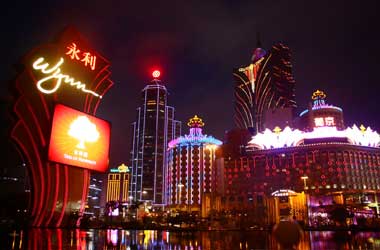Japanese Casino Legalization
On July 20, 2018, the Act to Implement Specified Integrated Resort Areas (the “Casino Implementation Act”) passed the Japanese Diet which legalized gambling to be operated by private entities in Japan. While there are many aspects which have been delegated to the determination by the ministry ordinance (in fact there are 331 items that are up for the ministry ordinance to determine), below are several key points of the Casino Implementation Act:
By analyzing the responses of the current Japanese-speaking tourists to Hawaii and comparing these responses with the Japanese tourists surveyed 10 years previously (1996), an attempt can be made to determine whether Japanese tourists in 2006 have changed their perception of the legalization of casino gambling in Hawaii. Yet, after a number of delays, casino legalization bill was introduced on Tuesday and the outcome is said to be really interesting. This is the latest attempt of Japanese lawmakers to make casino activities on Japanese soil legal.

- Size of casino facilities
While the Casino Implementation Act is still silent on the actual limitation on the size of the casino as this has been relegated to the cabinet ordinance (Article 41 of the Casino Implementation Act), the working team concerning the ruling party’s IR Implementation law issued their opinion regarding the size of the casino floor. Considering that the location and size has yet to be defined, rather than setting a limitation on the absolute value, it was determined that the gross floor area for the casino in IR facilities shall be limited to 3% or less.
The basis of the calculation shall be 3% of the “gross floor area” and not the land area, which should ensure the casino to be “only a part of the facilities.” - Limitation on the number of times of entry and means to verify identity
Chapter VII of the Casino Implementation Act provides for a strict limitation on the number of times of entry and entry fee to prevent problem gambling. While there is no limitation on the number of times of entry for non-Japanese residents, the Japanese residents are limited to “3 times in 7 days + 10 times in 28 (Article 69 of the Casino Implementation Act), and “My Number cards” shall be utilized for the verification of identity and the number of times of entry (Article 70 of the Casino Implementation Act).
- Entry fee
The entry fee will be imposed to Japanese residents in the amount of 6,000 yen, the half of which shall be paid to the national government (Article 176 of the Casino Implementation Act) and the other half to the local government (Article 177 of the Casino Implementation Act).
- Levy
While there was a discussion of whether a progressive system could be imposed, since this may reduce the incentive for entities to expand their business by additional investment and presents a risk to discourage investment to realize the commonwealth, the levy was fixed at the rate of 30% of gross gaming revenue, half of which shall be paid to the national government (Article 192 of the Casino Implementation Act) and the other half to the local government (Article 193 of the Casino Implementation Act).
- Number of IR areas
Article 9 of the Casino Implementation Act provides that the number of location shall be limited to three (3). However, the Casino Implementation Act provides that after five (5) years have passed since the first designation, the Casino Implementation Act as a whole shall undergo a review and after seven (7) years have passed since the first designation of the IR, the number of location will be specifically reviewed giving consideration to local areas which desire and are preparing to establish the facilities while securing a period for determining the effect of IR (Article 4 of Supplementary Provisions to the Casino Implementation Act).
- Relationship with cities where the facilities will be built
The Casino Implementation Act provides that the enforcement policy to be prepared by the local government requires consent of the city where the IR will be actually located (Article 6 of the Casino Implementation Act), requiring a method of consensus-building at the ground level.
- Japan set to indefinitely postpone casino legalization: sources. One Japanese casino industry source said there was a chance legislation could be delayed by three or four years, meaning actual.
- Casino legislation in Japan picked up fresh momentum with lawmakers submitting the Integrated Resort (IR) Enabling Act to the Diet in 2015. Legalization and bidding. In July 2018, Japanese lawmakers approved a bill that officially allows casinos in the country.


Japan Casino Legalization
As mentioned above, while the details on how to implement casinos are to be determined by the ministry ordinance, some of the major items which have been debated for some time are now clarified by the Casino Implementation Act to a certain extent, and it should be fair to say that Japan has taken a big step closer for the first ever opening of the legalized casinos.
Related Contents

Key Contacts
Japan Casino Legalization
Hitoshi IshiharaHitoshi Ishihara is a partner at Anderson Mōri & Tomotsune. As the sole Japanese attorney admitted to the International Masters of Gaming Law (IMGL), Mr Ishihara has extensive focus and knowledge concerning Japanese gaming law, including the recently legalized casino operations in Japan, and has been recognized as the Japanese Gaming Lawyer of the Year by multiple sources in recent years. Mr Ishihara also provides a variety of legal services to his clients establishing and doing business in Japan, with an exceptional focus on cross-border transactions. Also, in the intellectual property field, Mr Ishihara has extensive experience in IP licensing and transactions, and also provides advice on regulatory issues. His distinctive English skill, backed by over seven years’ experience in the United States, enables him to effectively bridge the linguistic and cultural gap faced by his clients. He is admitted in both Japan and California (United States). |